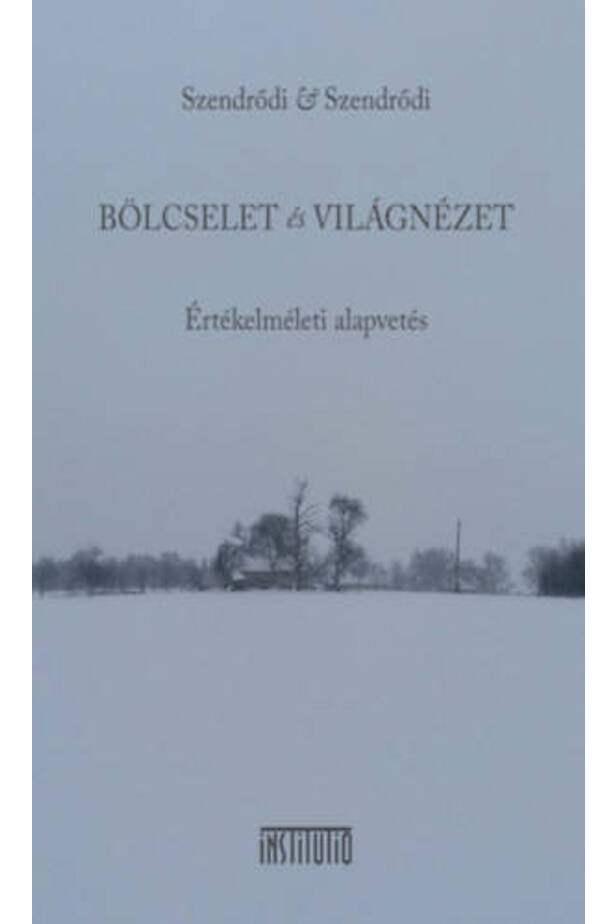Philosophy and worldview
Delivery time: 2 - 3 business days
Quantity:
HUF 8,790
Description
Wisdom or Wisdom? The philosophers most often quoted today hold almost unanimously the view that metaphysical theories can only be classified as a misconception. Thus, if some kind of meaning can be attributed to the search for truths of an absolute nature, then this sense, for example, according to the neo-pragmatist Richard Rorty (1931 - 2007), can only be manifested in selfish, futile wisdom. Jürgen Habermas (* 1929), a prominent representative of the Frankfurt-based school in Frankfurt, considers it to be proven by similar conviction that insights comparable to scientific knowledge cannot be generated by philosophical methods. The credibility of this widespread relativistic conception is called into question by the philosophical system comprehensively described in the work, which seeks to look at the cultural products of mankind in a broader perspective than the paradigm of materialist-oriented systems of thought. According to the authors' interpretation, the remarkably recurring formal features in the historical process of social development and scientific knowledge suggest that only philosophical systems that fit harmoniously with the knowledge of the scientific disciplines, which are often developed in random leaps, can possess lasting scientific value. requirements of a sufficient metaphysical basis. If our intellectual products do not contradict the requirements of this system of conditions, then as a result, our thinking activity is whether it serves the purposes of acquiring scientific knowledge or seeks answers to questions arising from the existential situation of man. Based on the facts supported by logical reasoning, the work makes it clear that, in the case of uncontroversial intellectual acts, we can judge ourselves and the processes of the world that affect us in an absolute position. Dr. Győző Szendrődi was born on January 8, 1942 in Budapest. His father, whose surviving oeuvre was processed in this volume, was lost at the age of fourteen. He was not even seventeen years old when he became acquainted with the prisons of the Kádár regime after the revelation of the resistance movement known as the Buda Student Organization. As a side penalty, he was expelled from all high schools in the country. He worked as an auxiliary worker for eight years until he could only escape to Austria. He graduated from the University of Vienna - majoring in psychology and studying philosophy and art history. These three disciplines later defined his scientific work, which resulted in a number of publications, including a volume of studies in art psychology (published under the auspices of the Deutscher Wissenschaftsverlag). His attraction to the arts was also expressed in the fact that he published several short stories in Hungarian in émigré journals and published a novel in German (published by Athena Verlag). He has lived in Hungary again since his retirement. She has two children. It can’t be a coincidence that one, Victoria, is an artist (pianist) and the other, Julia, is a research doctor.
| publisher | Virágmandula Kft. |
|---|---|
| writer | Dr. Szendrődi Győző |
| scope | 633 |
| volume unit | oldal |
| ISBN | 9789634670469 |
| year of publication | 2019 |
| binding | hard knitting |


